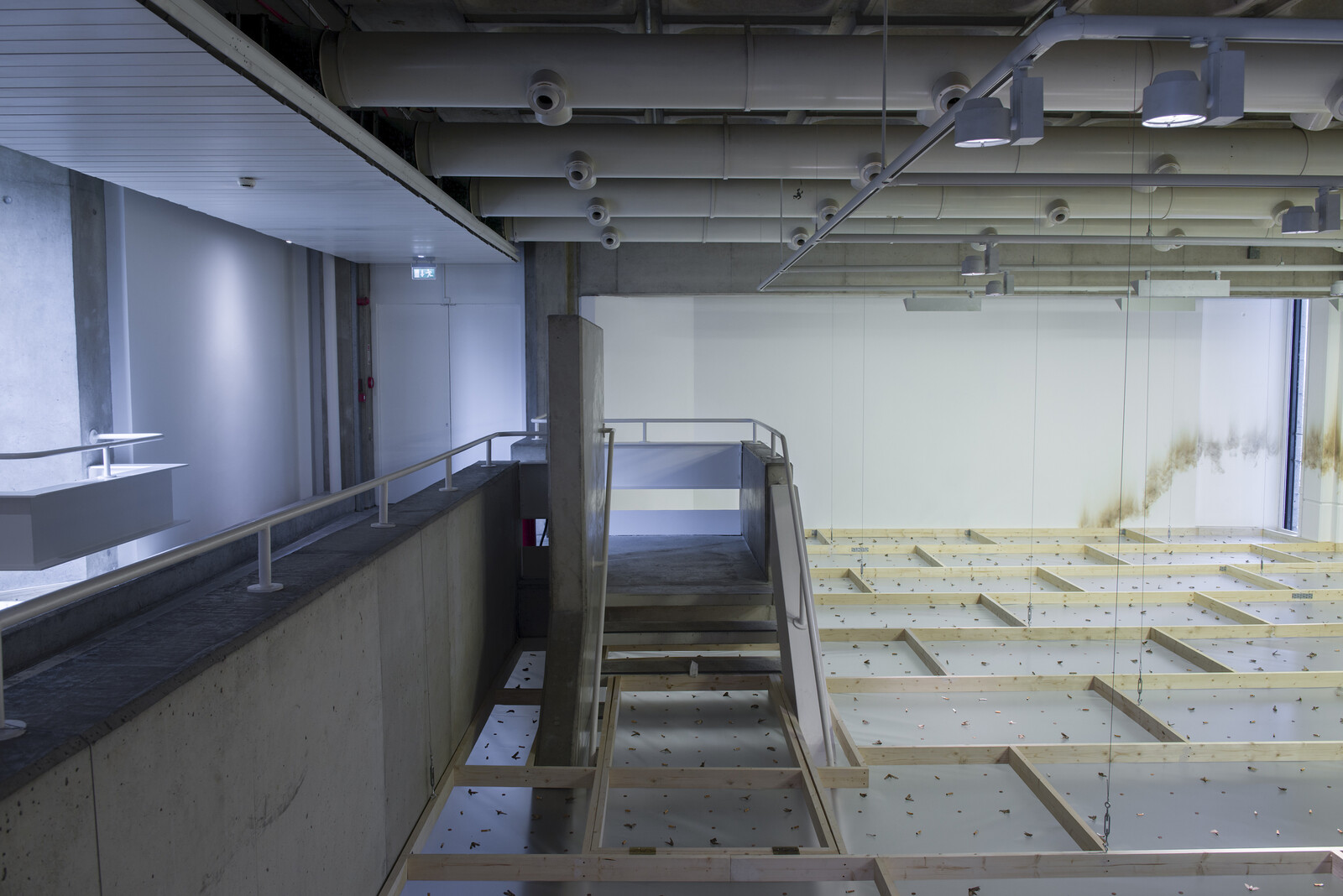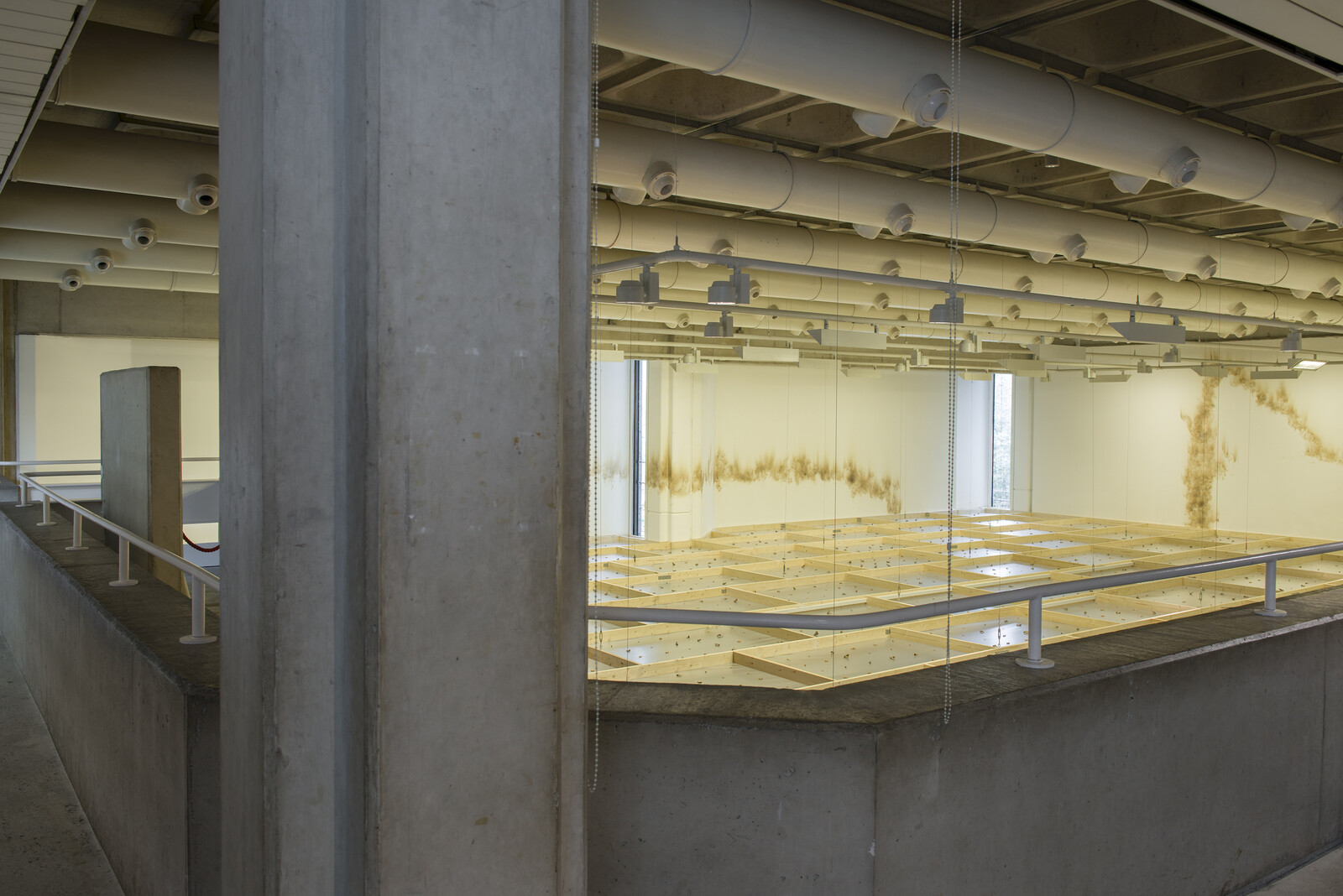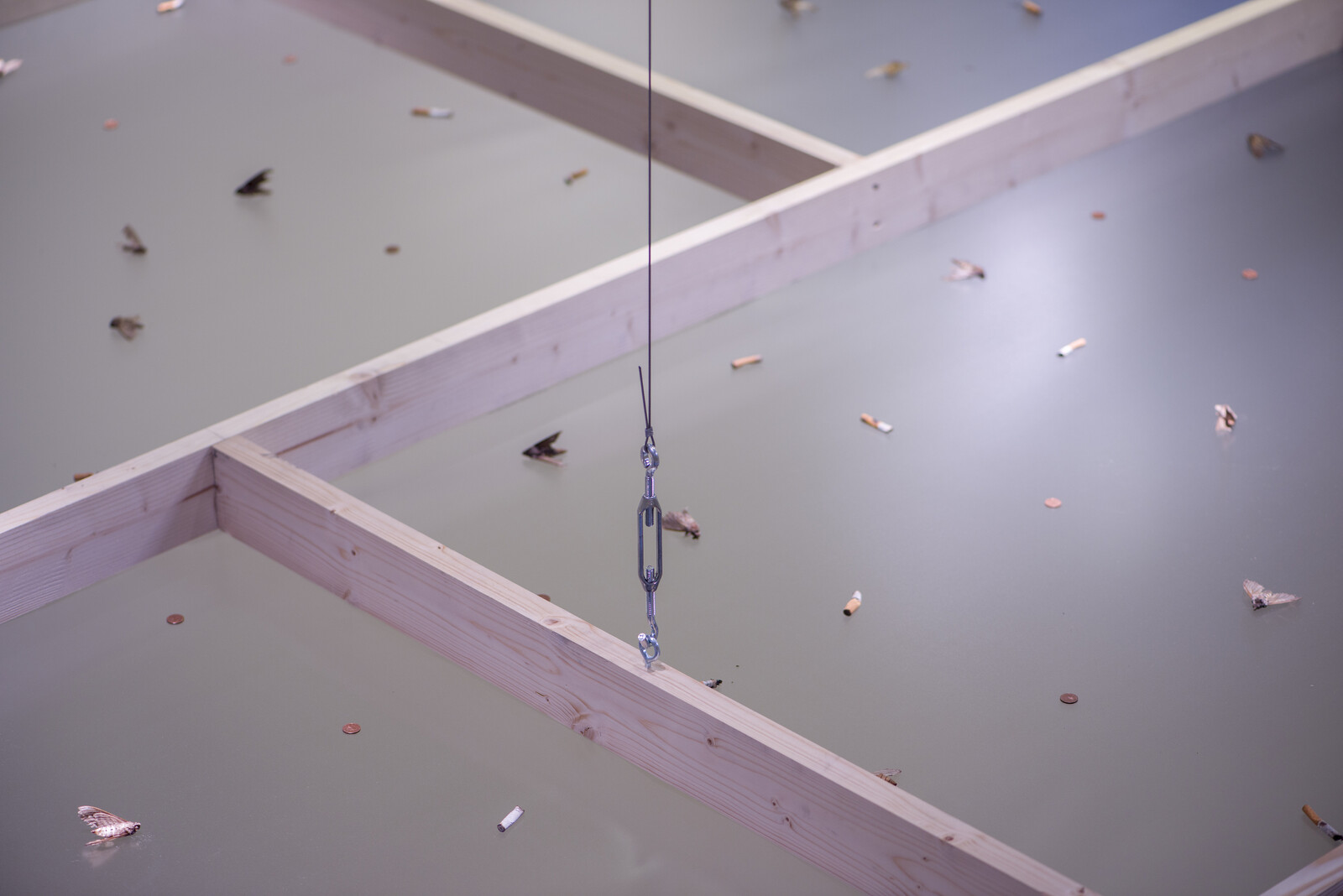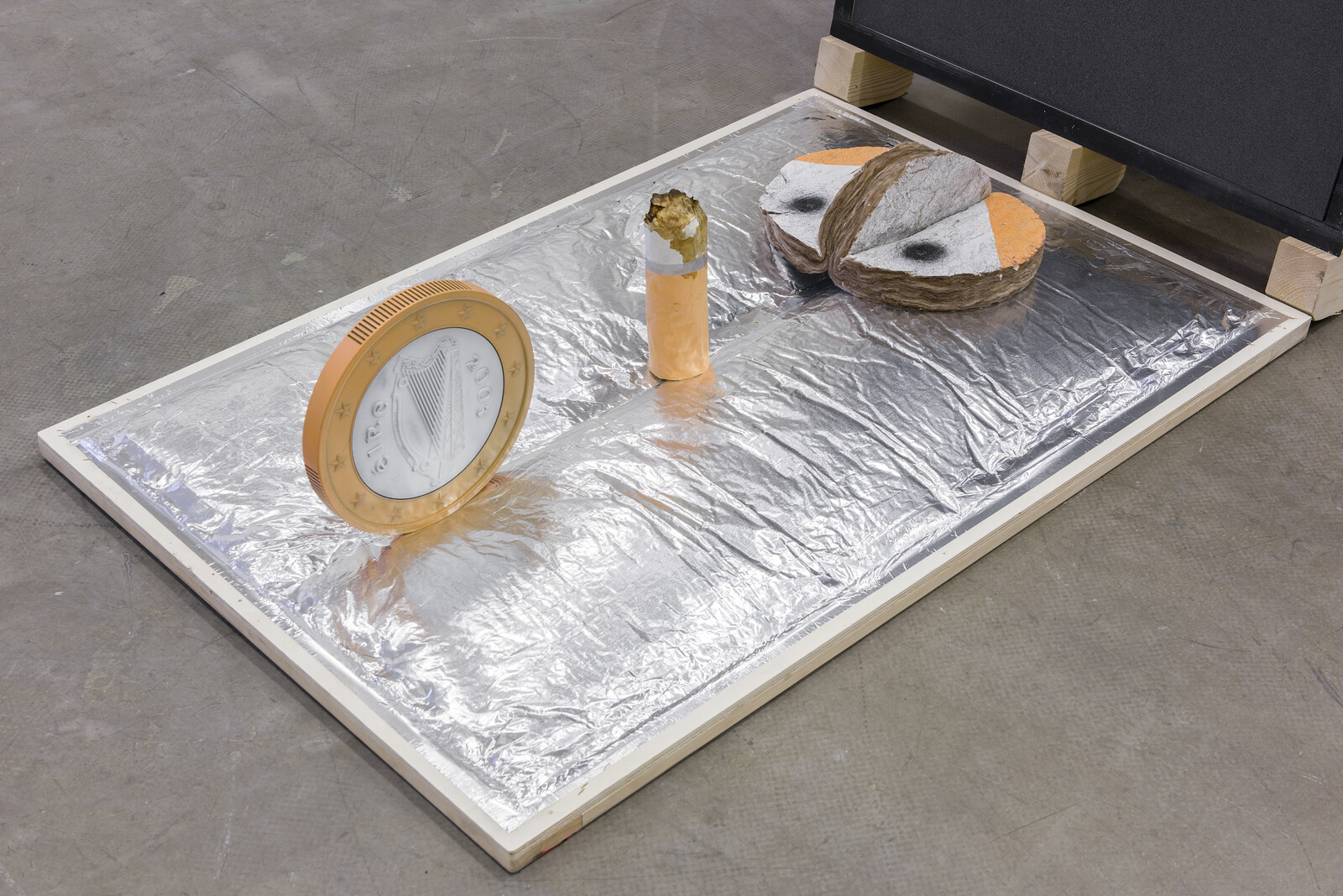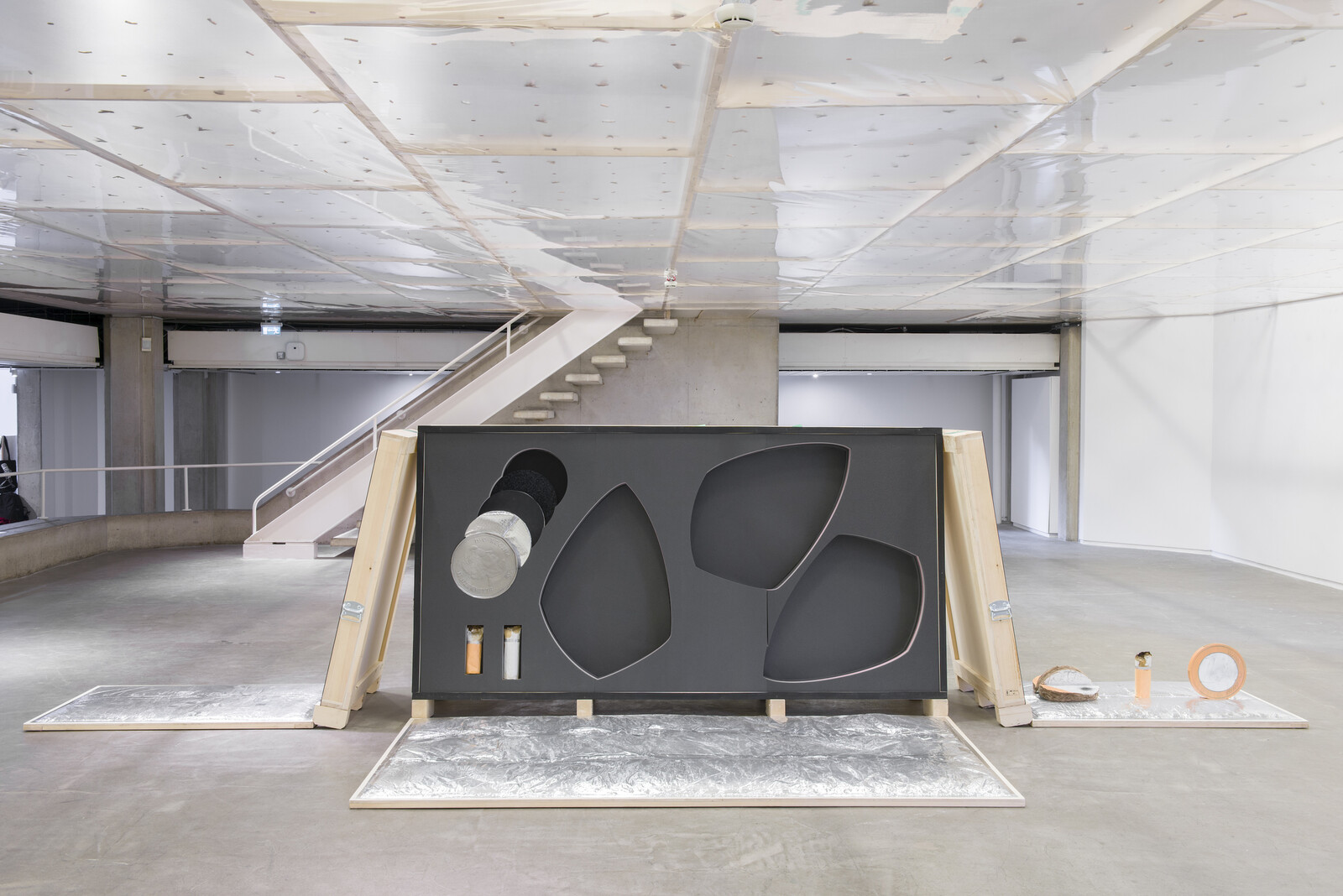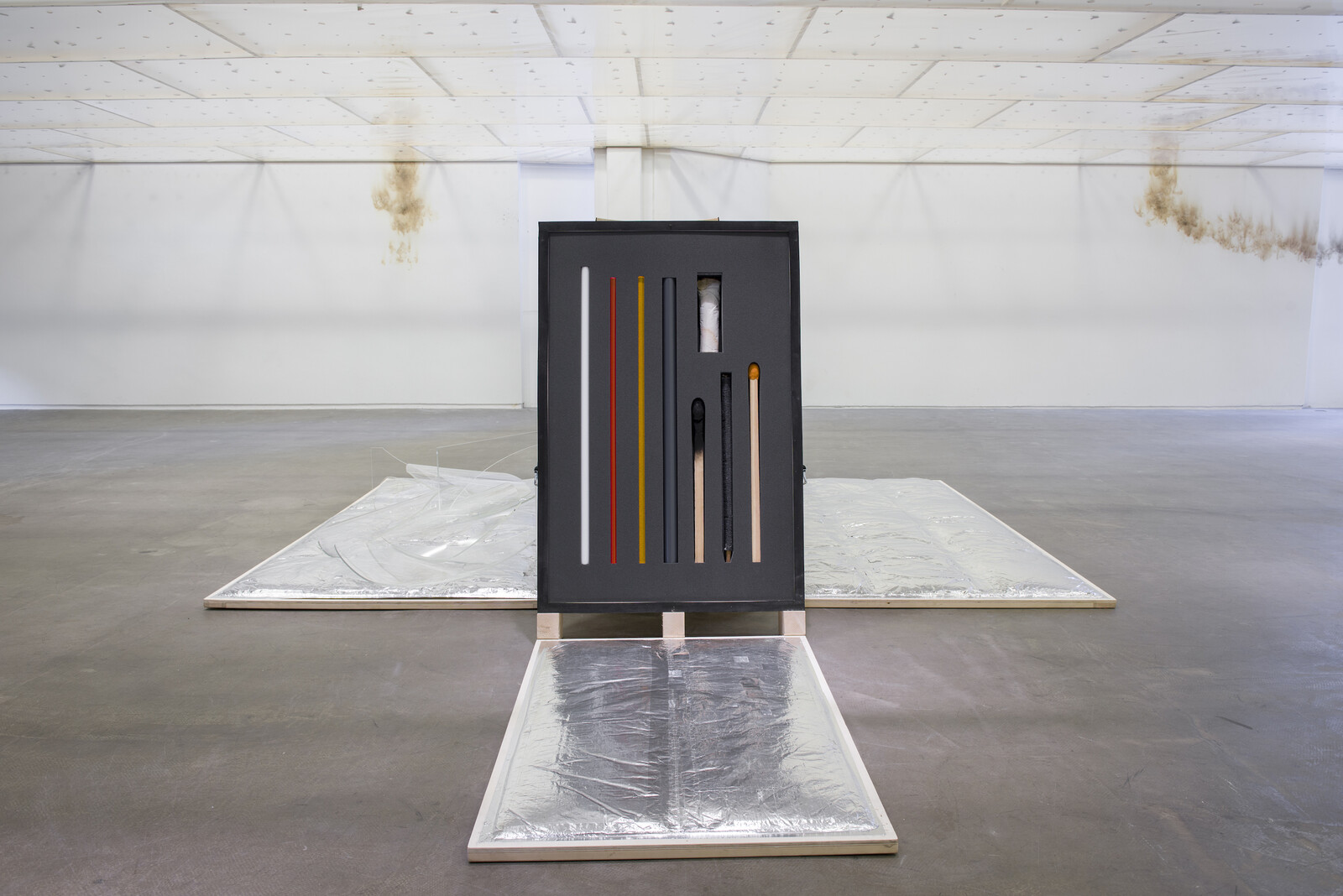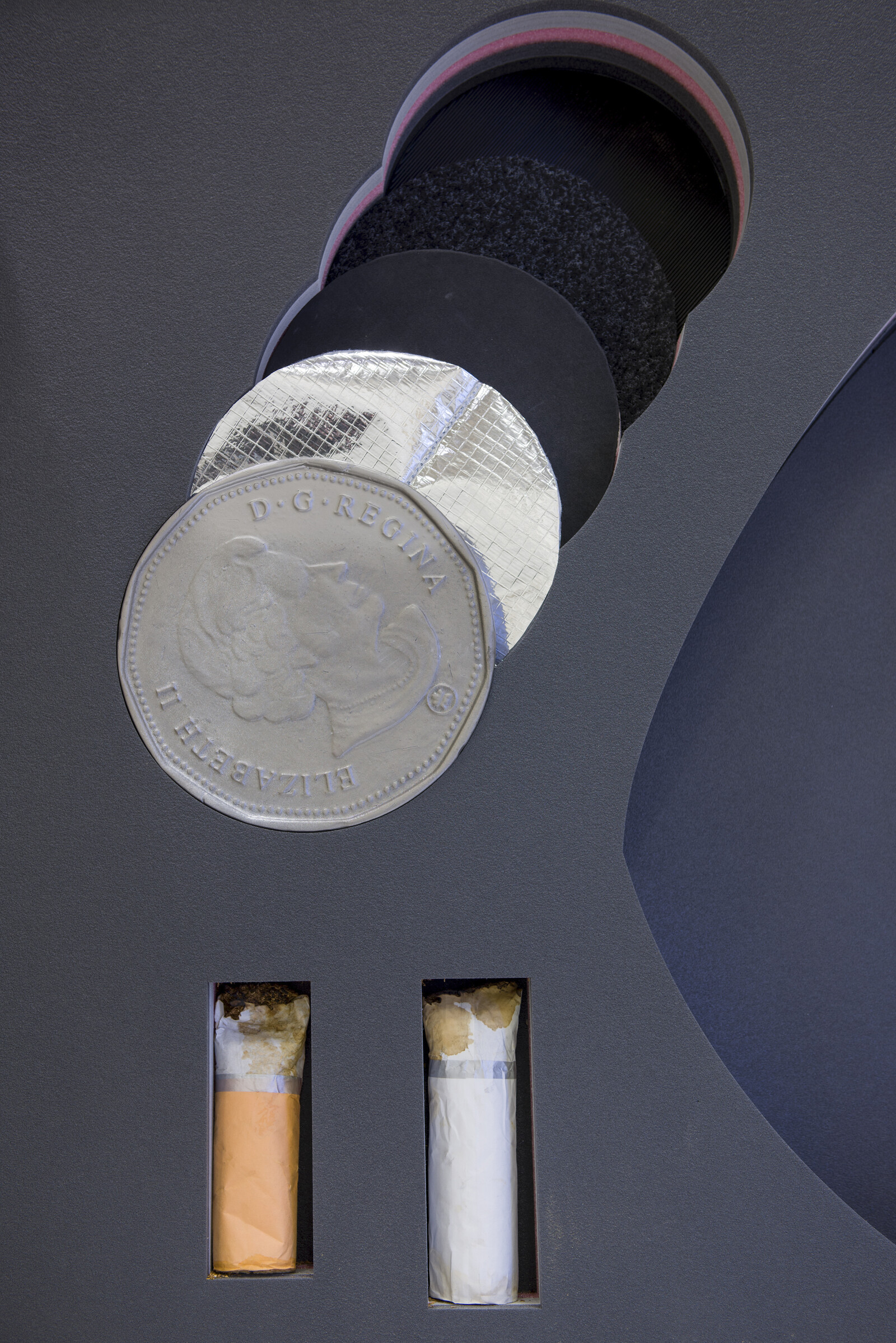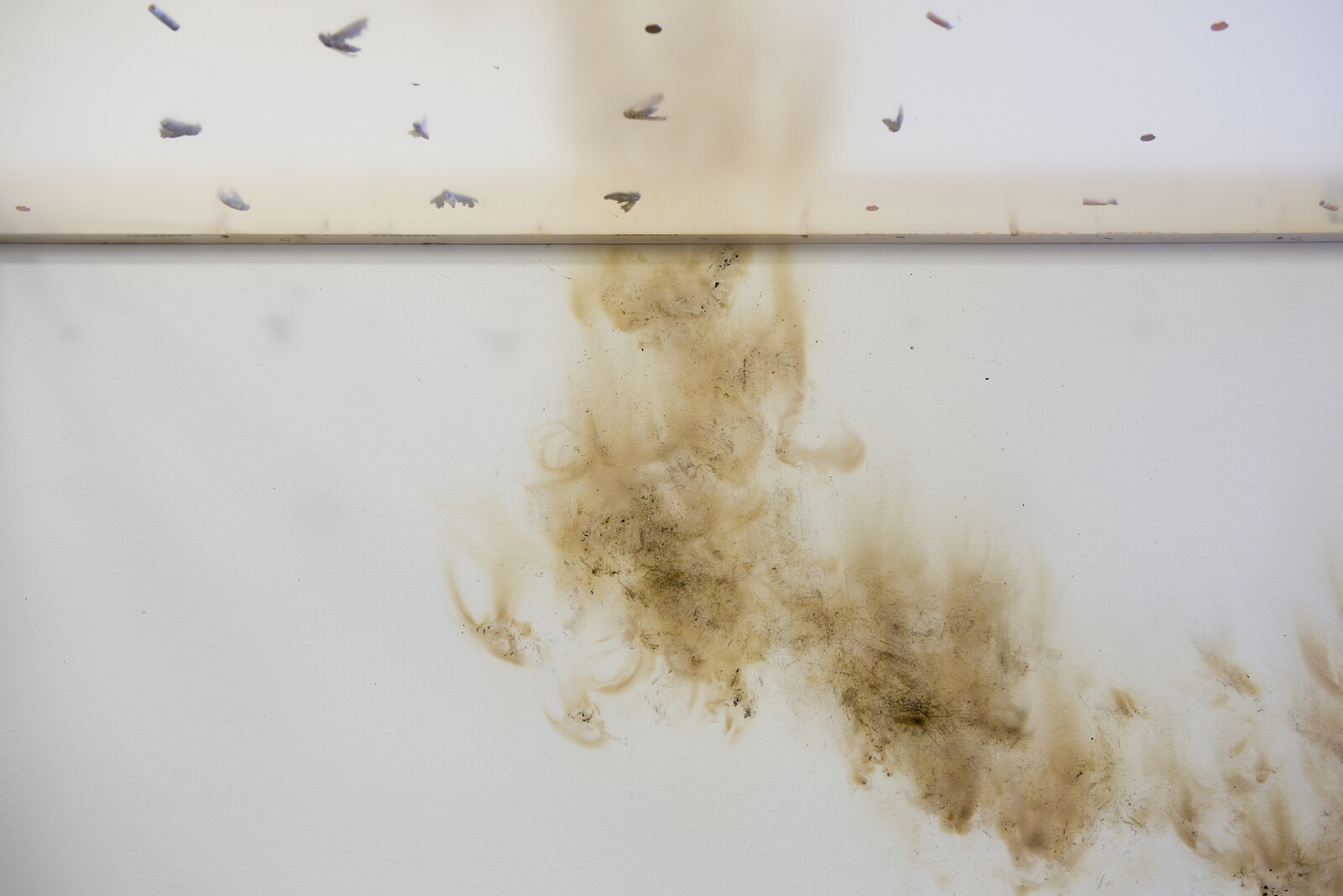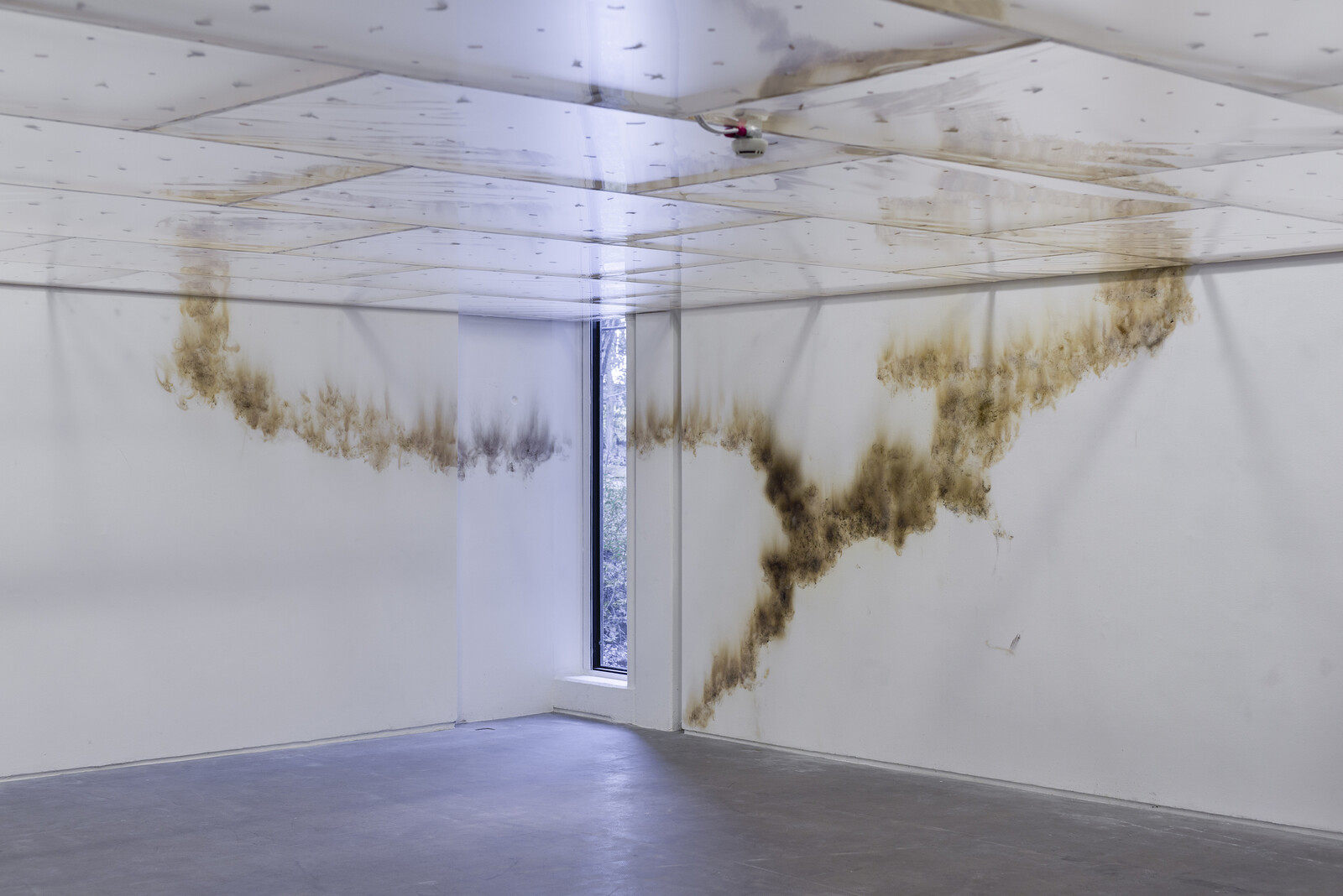Gabriel Kuri’s focus on the everyday exchanges that structure our social lives has, in the context of mass confinement, taken on a melancholy aspect. Insulated from the outside world by a PVC strip curtain, a spiral staircase leads visitors down to the Douglas Hyde’s cavernous lower gallery, its volume halved by a makeshift plastic ceiling suspended by thin wires from the rafters. The surface of this translucent canopy is speckled with dead gypsy moths, verdigrised coins, and crumpled cigarette butts arranged into neat grids. Seen from below, they resemble a constellation of exhausted stars or the beads on an abacus designed to calculate some inscrutable and unpayable debt.
The exhibition literature casually describes this dropped ceiling as establishing a “static field,” which at least sheds some light on its gnomic title: by reducing the space to be heated in the gallery, the installation conserves energy. Further consultation with an encyclopedia—and its tentatively grasped definition of a “static field” as something like the programming equivalent of a grammatical modifier—suggests that we might interpret the installation’s various elements as constituting a network of relations. The meaning of these materials is determined by the systems in which they participate, much as the discolored coins carry value despite the fact that their promise to pay the bearer a sum could never practically be redeemed.
If art is itself a “form of social participation,” as Kuri maintains, then the meanings of his sculptures and installations are conditioned by the ideas and objects that circulate around them.1 All of which might go without saying were it not for the unprecedented shift in the social, political, and economic contexts surrounding this abbreviated exhibition. Under this literal and metaphorical net, four large wooden packing cases, arranged in cruciform at the center of the space and opened at the hinge, display oversized reproductions of the detritus overhead. Packed snugly into the molded foam insulation and arrayed like a travelling salesman’s wares, these gigantic coins, cigarette butts, and fiberglass wings are crudely rendered in cheap materials. Where Marcel Duchamp’s portable Boîte-en-valise (1935–41) miniaturized the artist’s oeuvre in ironic commentary on the status of art objects, Kuri aggrandizes found objects to create a body of sculpture.
The back-and-forth between theory and form is dizzying, and the risk of these feints is that they do little more than highlight the fragility of the intellectual frameworks on which they depend for effect. Yet the sculptures are rescued from mere shadow play by the historical associations that tether them to their social context. Whether by accident or design, the title of irish heating bill (2019) will bring to visitors’ minds a scandal that threatened recently to bring down the Northern Irish government and the popular discontent over fuel poverty that contributed to Sinn Féin’s recent electoral gains in the south, while both the euro coins and the resemblance of error bars (2019) to candlestick charts will conjure the catastrophic collapse of the republic’s banking system a decade earlier.2
The disintegration of Ireland’s pyramid-scheme economy in 2009 offers the clearest illustration of how the abstraction of value precedes its dissolution.3 That process is literalized by chart (2020), a series of scorch marks drawn onto the wall with the smoke created by burning documents calculating the expected reduction in energy bills effected by the false ceiling. That this gesture was rendered moot by the proliferation of a deadly strand of RNA offers a reminder that the artificial systems on which we rely are not perfectly insulated from the world of which we are part and over which we cannot exercise control. The systems that assign value in our culture are in the process of being reconfigured. There might be some hope in that, too.
Philipp Hindahl, “Strange and Seductive Objects: Gabriel Kuri,” Mousse, http://moussemagazine.it/strange-seductive-objects-gabriel-kuri-philipp-hindahl-2019/.
Launched in 2012, the spectacularly maladministered Renewable Heat Incentive scheme was designed to encourage Northern Irish businesses to switch to renewable energies by reimbursing fuel costs above the rate of their purchase. The inevitable consequence was that farmers set out to burn as much of it as possible before anyone noticed the error, which would cost the government an estimated €700m.
Famously encapsulated by the banker caught on a recorded phone call explaining how he had arrived at the figure of €7bn for the government’s bail out of Anglo Irish Bank: “I picked it out of my arse.”

